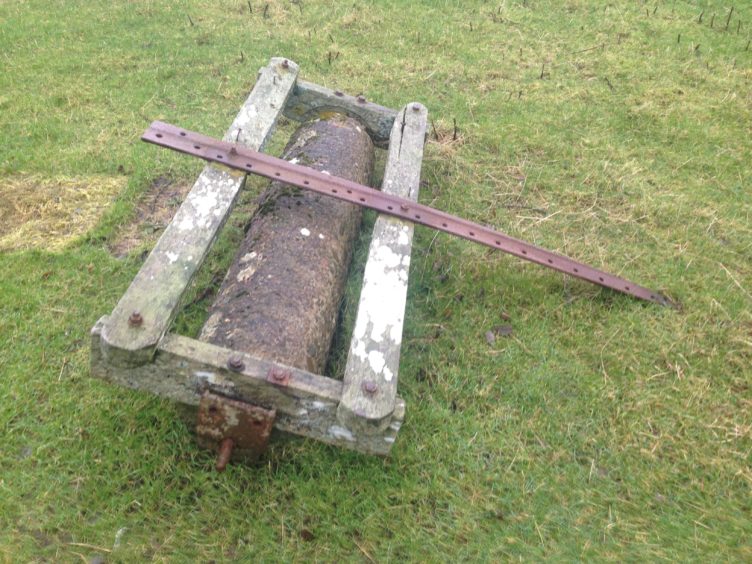
To the untrained eye, it was an undistinguished lump of weather-beaten wood which lay for decades in the fields of a Scottish croft.
In fact it was part of a valuable cargo of teak, jettisoned after a dramatic shipwreck in a doomed bid to save the vessel.
Now, 80 years after the ship hit the rocks, highly skilled instrument maker Peter Barton from Yorkshire has given the wood new life – by transforming it into an eight-string mandolin. Orkney man Stuart Wylie provided the teak after the two discovered a shared love of woodwork.
The teak is believed to have originated from Burma. It was on board the merchant ship Tennessee bound for Oslo in 1940 which ran aground off Orkney coast. The crew jettisoned the cargo in a bid to save the ship.
Enterprising locals found various uses for it including fence posts, doors and a staircase. Mr Wylie’s family made a roller to flatten the fields.
However, after the metal roller had rusted away, Stuart offered the wood to Mr Barton, a luthier (stringed instrument maker) when he holidayed on the island last September. Mr Barton thought it would make an ideal mandolin. He sliced it longways to make the back and sides and there was enough to make the neck. The front is Alpine Spruce, the fingerboard ebony.
The craftsman has played the instrument and declares: “It sounds lovely – it’s a really lovely flat top mandolin.”
Mr Barton spend three or four weeks making the mandolin and intends to take it back to Orkney and offer it for auction to benefit young musicians.

Enjoy the convenience of having The Sunday Post delivered as a digital ePaper straight to your smartphone, tablet or computer.
Subscribe for only £5.49 a month and enjoy all the benefits of the printed paper as a digital replica.
Subscribe